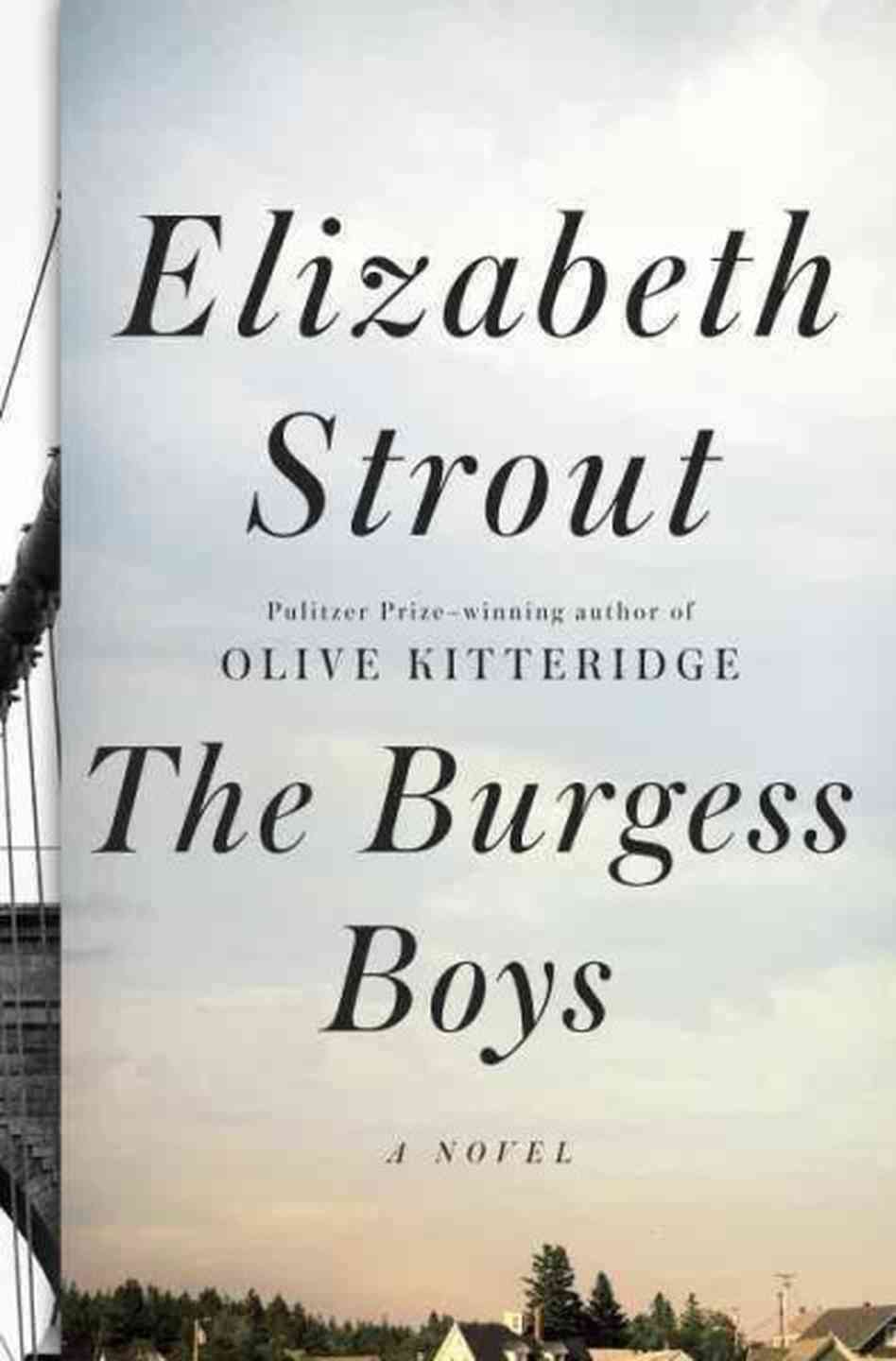The Burgess Boys by Elizabeth Strout
 Small-town Maine, where Elizabeth Strout was born and raised, has been home to her four novels. In her first title since she won the 2009 Pulitzer Prize for her novel-in-13-stories, Olive Kitteridge, Strout returns to tiny Shirley Falls where she set her acclaimed, chilling debut, Amy and Isabelle. This time, in The Burgess Boys, she brings the whole wide world to the isolated mill town, from ex-residents who never intended to go ‘home,’ to refugee transplants who long to return to people and places that no longer exist, to the ubiquitous media with their imposing, exposing cameras that send the worst of Shirley Falls around the globe.
Small-town Maine, where Elizabeth Strout was born and raised, has been home to her four novels. In her first title since she won the 2009 Pulitzer Prize for her novel-in-13-stories, Olive Kitteridge, Strout returns to tiny Shirley Falls where she set her acclaimed, chilling debut, Amy and Isabelle. This time, in The Burgess Boys, she brings the whole wide world to the isolated mill town, from ex-residents who never intended to go ‘home,’ to refugee transplants who long to return to people and places that no longer exist, to the ubiquitous media with their imposing, exposing cameras that send the worst of Shirley Falls around the globe.
As soon as they were able, the Burgess boys left Maine, both becoming lawyers who landed in Brooklyn. Jim, the eldest, became a celebrity corporate attorney and lives a lavish lifestyle with his old money trophy wife and their almost-grown children. Bob also chose the law, but most of his Legal Aid clients can’t afford to pay him; his ex-wife remains his best friend, although she left him for a Park Avenue life with a new husband who could give her the children she desperately needed. Bob’s acerbic twin, Susan, is the only Burgess who stayed Shirley Falls-bound, solo-parenting a quiet teenage son, Zach, after her husband abandoned the family to move to ‘real’ Sweden after growing up in New Sweden, Maine.
Lonely, isolated, friendless, Zach’s done something terrible: a pig’s head, a mosque, Ramadan. Susan hysterically calls her brothers home. For the first time in decades, the Burgess siblings are forced together to face not only the charges threatening Zach’s entire future, but their own troubled relationships with each other, as well as their long-dead parents – a father killed too young in a horrible accident, and a mother whose bitterness poisoned them all. In spite of Zach’s heinous act, Strout avoids absolutes, moving fluidly between condemnation and empathy by adding diverse community voices, including a devout Somali storeowner who witnessed his son’s brutal murder, a twice-divorced Unitarian minister, and an elderly lodger in Susan’s home who has listened for years to Zach’s loud music … and his tears alone at night.
The single extraneous voice appears in the “Prologue” and then disappears: an unnamed Shirley Falls transplant to New York explains how she came to “‘write the story of the Burgess kids'” – those opening five pages wouldn’t be missed. And since I’m quibbling, might I add a quick warning that what ubiquitous narrator Cassandra Campbell (hard to pick up a book without getting her stuck in your ears) thinks are regional and international flourishes will just need to be ignored. Thankfully, Strout’s words are stronger than Campbell’s grating accents. By book’s end, what you’ll remember most are the challenges, negotiations, joys, acceptances, and renewals of the remarkably resilient bonds that make up family.
Readers: Adult
Published: 2013
Sorry, the comment form is closed at this time.

Discussion